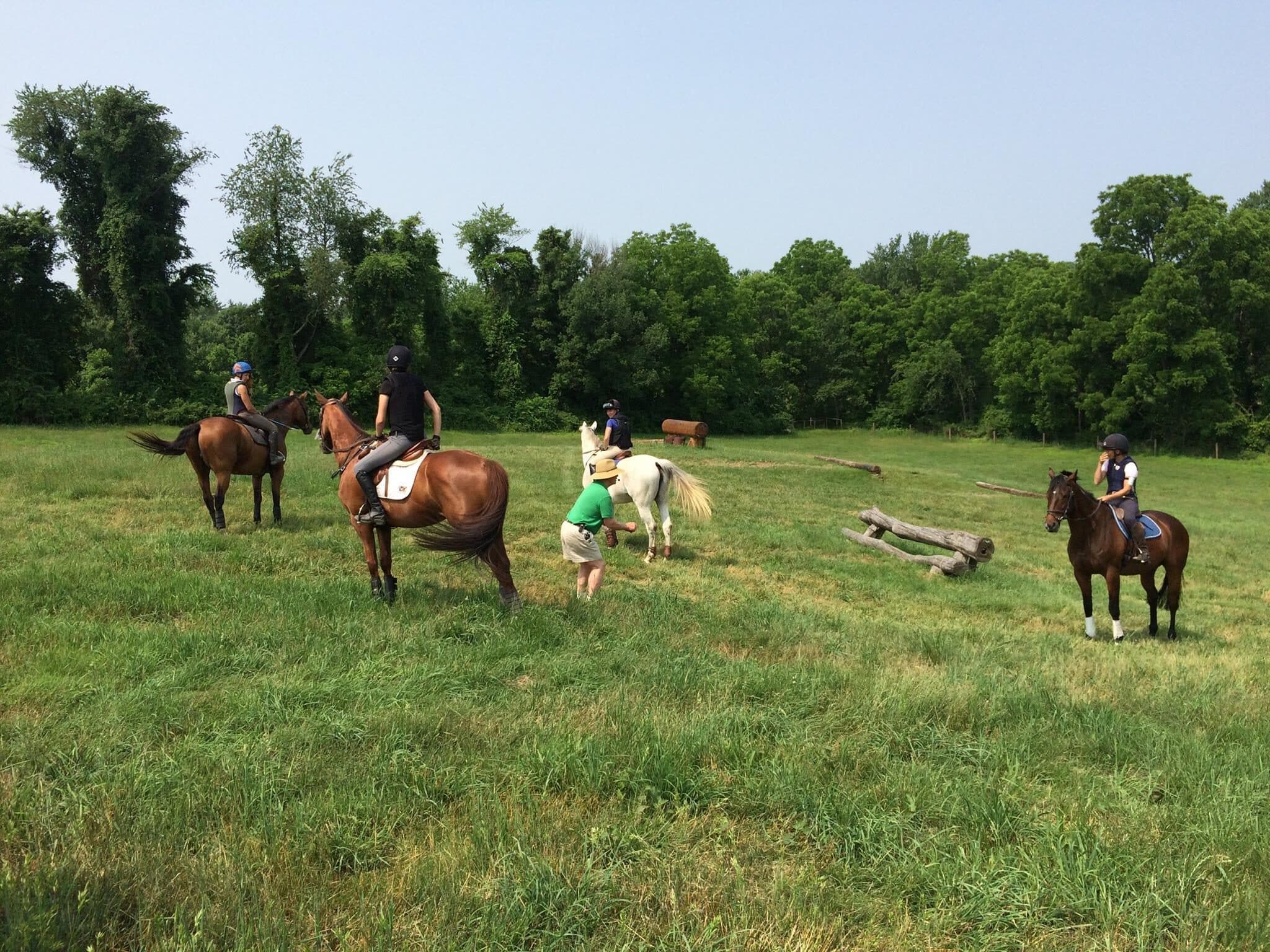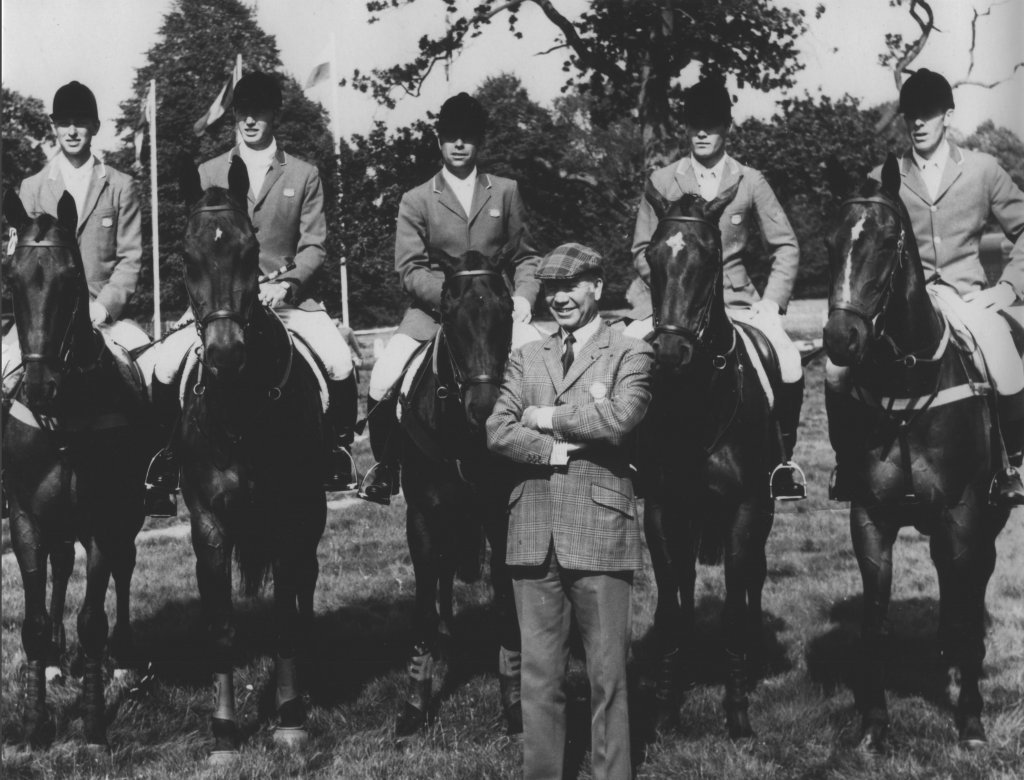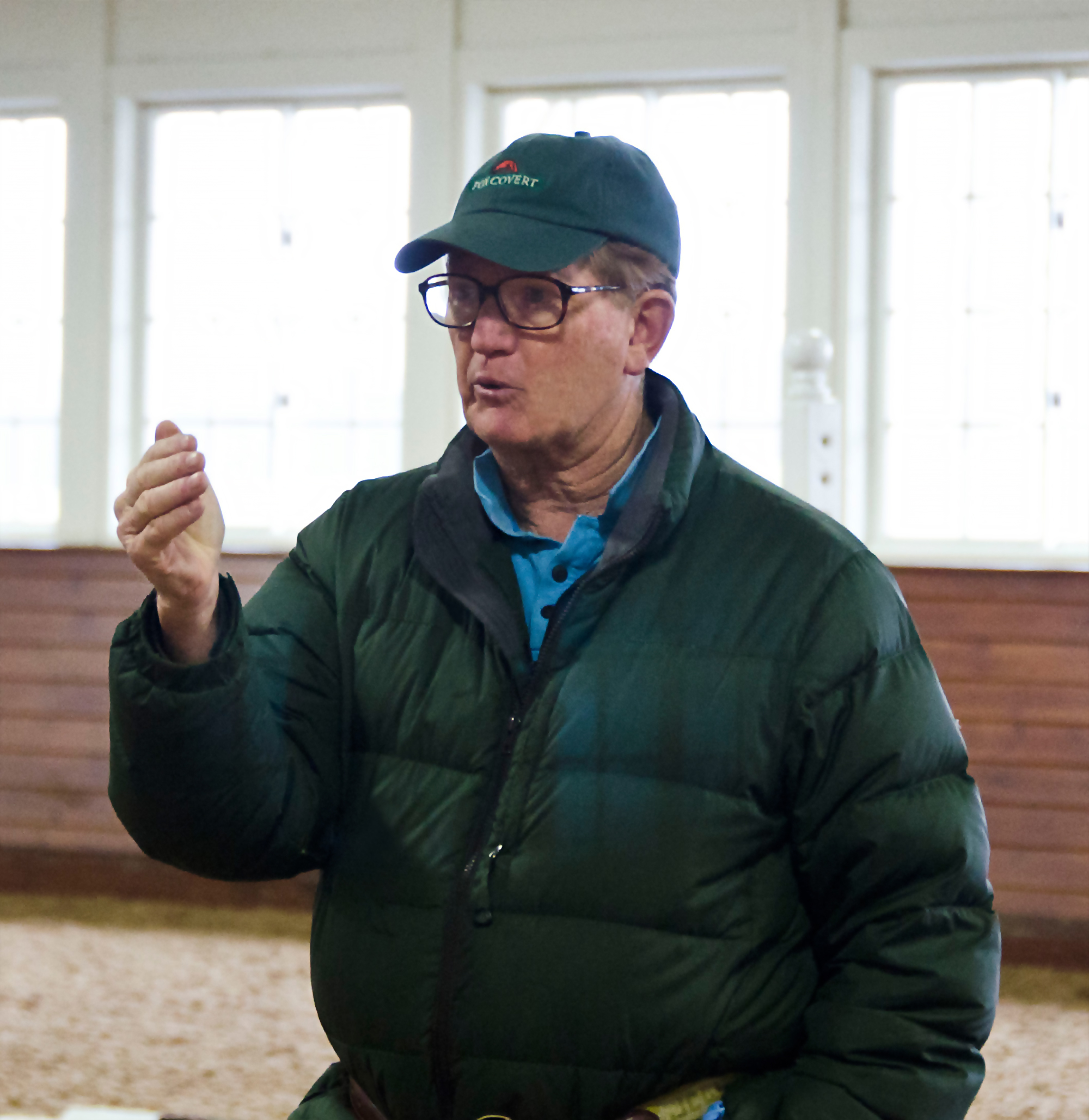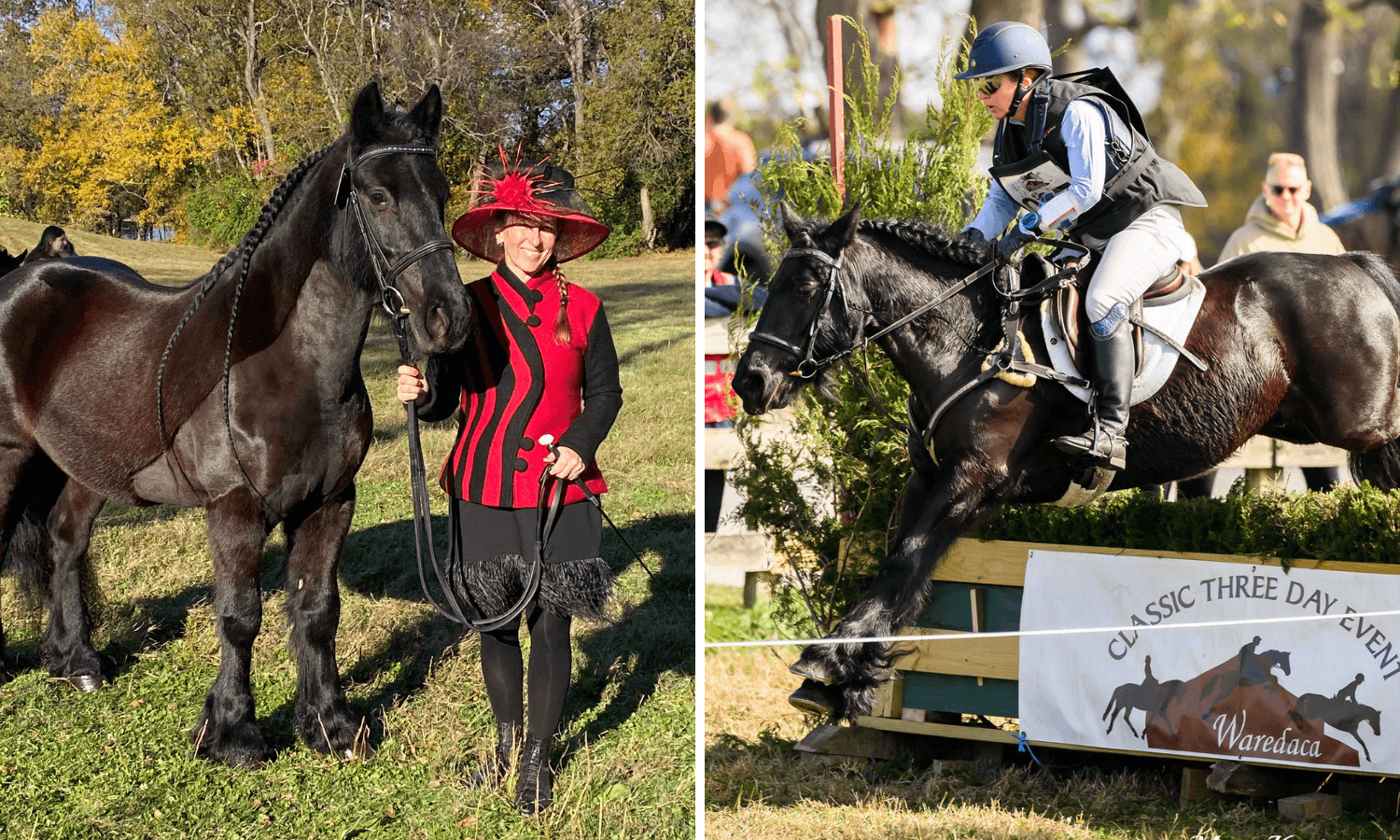Featured Clinician: Jim Wofford

The “Featured Clinician” article series is provided through a partnership between Event Clinics and the USEA.
Event Clinics recently conducted an interview with renowned trainer, eventer, and three-day event coach Jim Wofford to learn more about his favorite parts of conducting clinics. Wofford is highly regarded not only for his coaching skills but also for the unique brand of humor that he brings to teaching.
Today, riders book their ride slots well in advance for Wofford’s monthly clinics series at top facilities such as Waredaca (Md.), Beverly Equestrian (Va.), and Last Frontier Farm (W. Va.). Event Clinics caught up with Wofford after one of his monthly “Expert Days” jump clinics at Waredaca farm in Laytonsville, Maryland to learn a bit more about his journey.
A three-time Olympian, Wofford grew up on a horse farm in Milford, Kansas. His father rode on the 1932 Los Angeles Olympic show jumping team and was later the founding president of the U.S. Equestrian Team (USET). His brothers, J.E.B. and Warren, were also both USET riders. As a teenager, Wofford attended Culver Military Academy, which was the training site for the U.S. Army Olympic equestrian team.
Wofford joined the U.S. Eventing Team in 1965 at the young age of 21. Shortly thereafter, Wofford successfully represented the U.S. at the 1968, 1972, and 1980 Olympic Games as well as the 1970 and 1978 World Championships. Wofford’s competition record includes wins at five U.S. National Championships, a team gold medal at the 1967 Pan Am Games, and two Rolex Kentucky Three-Day Event wins. He also has experience racing as a steeplechase jockey and fox hunting.

Wofford credits much of his success to having the right coaches at the right time. “For the most part, I was lucky enough to have exact coaches I needed, at the exactly the right time in my career. I got invaluable advice from all of them along the way. I learned a tremendous amount working with Jack Le Goff and Lars Sederholm.”
For those of you who may not know the name, Lars Sederholm coached Wofford around his first Badminton Horse Trials. Sederholm was also a trainer and mentor to notable riders such as Mary King, Yogi Breisner, William Fox-Pitt, David O’Connor, Lucinda Green, and Richard Walke.
Although he retired as an active competitor in 1986, Wofford still rides and teaches around the globe. According to Wofford’s USEA's Eventing Hall of Fame, “At least one rider on every U.S. Olympic, World Championship, and Pan American team since 1978 has been a graduate of Wofford’s program.” A sampling of some of the competitions where Wofford has coached students include the 2000 Sydney Olympics, the 2004 Athens Olympics, the 2002 World Equestrian Games, and the 2003 Pan American Games.
Today, Wofford is highly sought after as a clinician. We asked Wofford for a few thoughts on what he enjoys and dislikes about teaching clinics. He stated, “My favorite part of teaching clinics is watching the horses improve. It is amazing how well horses go when people ride well!” He explained that many of his comments are directed towards the rider. Once riders are riding effectively, the horse can become correct and change quite quickly at times.
Wofford also emphasized that how a clinic is divided into groups can have a profound impact on the success of the clinic. “One of the hardest parts of teaching a clinic is when the clinic is not well-organized. It makes a huge difference in the clinic when the horse and rider combination is placed in the correct group.”
Indeed, Wofford has a reputation for being frank with riders who self-select the wrong level to enter his clinic at! “Sometimes a four-star rider needs to be in a novice group if they are on a horse who is coming off the farm for the first time. You want the horse to enjoy the work, even though the rider is very capable.”
When asked about what he expects from riders participating in one of his clinics, Wofford answered, “I want them have an open mind.” Event Clinics has heard this sentiment quite often from clinicians, so we asked for details. Wofford explained, “I try to have riders jump at a competitive height during my clinics. I want to ensure that when the rider and horse go to an event that they see the obstacles and are confident in the fact that they have jumped those heights before.“

Wofford has worked with many different horses over the course of his career. When asked what advice he would give to his younger self, he said, “The most frustrating thing for a rider is a horse that is almost good enough.” He elaborated, “I stayed with some horses longer than should have. I felt like if I could ride better, they would go better. It took me a long time to learn you cannot make a four-star horse out of a three-and-a-half-star horse. Until I learned that, I stayed on the bench more than I needed to.”
When Wofford is not teaching the up-and-coming of the equestrian world, he’s also a prolific writer, historian, and avid outdoorsman. “I enjoys fly fishing in the summer and duck hunting in the winter,” he shared. You’ll often see Wofford at a show or teaching a clinic with his trusty Labrador retrievers by his side.
If you’ve not yet experienced Wofford’s humor in a clinic, you’ll get a good sense of what commentary you might encounter by reading his writing. His published books include Training The Three-Day Event Horse And Rider, Take A Good Look Around, and Cross-Country With Jim Wofford. His monthly column in Practical Horseman magazine is also a delight to read.
Behind the scenes, we learned that most riders do not know Wofford spends a great deal of his free time as a serious amateur historian. The Civil War and World War II are the subjects Wofford finds most interesting.
One book that Wofford highly recommends reading is Things that Matter by Charles Krauthammer, an American political columnist. Things that Matter contains a compilation of Krauthammer’s essays on topics from bioethics to America’s role as a superpower. "Krauthammer is a wonderful writer and the book is a great, easy read.”
We are very excited to have been able to interview Jim Wofford and get a glimpse into his favorite aspects of teaching. Wofford teaches clinics all over the country and holds a highly regarded "Expert Series" each month at Waredaca in Laytonsville, Maryland. Visit www.eventclinics.com to sign up!















